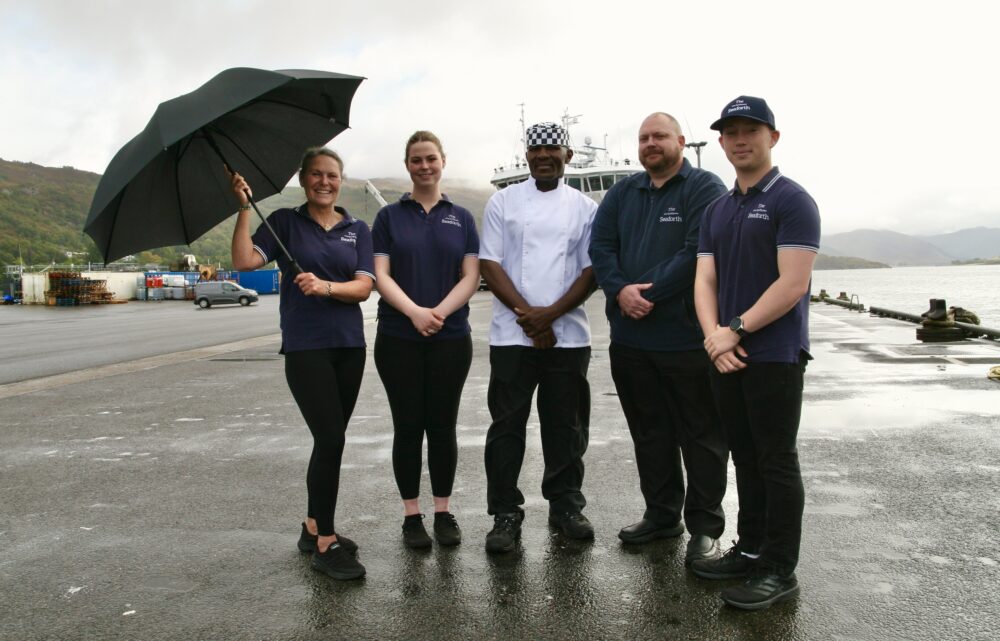Novel work-to-live scheme secures 100% recruitment
A hospitality business on the NC500 has ended a post-Brexit staffing shortage which reduced trading hours by 29% by introducing an innovative ‘work to live’ programme for staff.
The Seaforth restaurant and bar in Ullapool was forced to cease trading 2 days a week during the pandemic when a chronic lack of workers and rental accommodation forced them to slash business hours.
Left with no choice, they purchased a local motel in order to attract and accommodate workers.
Now they have gone a step further, introducing a programme of benefits including online skills training, personal mental health courses, free leisure access and optional half days – a switch which has seen them rewarded with 100% staffing levels.
Attracting and keeping talent in the West Highlands
The change represents stability for the business but also highlights the creativity involved in attracting – and keeping- hospitality staff in the west highlands.
During the turbulent Covid period, and with Brexit labour shortages biting, a local ‘staff-sharing’ scheme had to be put in place in Ullapool by local resident, Mamta Patel, which enabled businesses to train and pool casual employees within the community.
Thanks to the success of their recruitment innovations, The Seaforth have not required to use the community scheme this year, although they have provided online training for locals and accommodation for staff who could not find rentals.
Following The Seaforth’s diverse interventions in the labour market, all 35 positions required to run the business, 7 days per week, were occupied during the summer tourist season.
Training for workforce and unique benefits to promote positive work-life balance
Workers received online hospitality training programmes, complementary leisure access and half-day breaks to promote positive work-life balance, as well as an affordable place to live.
Mental wellbeing courses proved hugely popular, with staff also being alerted to opportunities to volunteer and participate in events and classes within the community.
The positive recruitment news represents a glimmer of hope, with the tourism and hospitality sector in Scotland continuing to battle serious staffing shrinkages.
A summer survey by the The Scottish Tourism Alliance said 52% of businesses were still in survival mode, with 31% citing lack of suitable candidates for jobs as a principal factor.
“We experienced both periods of operation and closure during the really difficult time during the pandemic. Local businesses faced constraints, with limited operating hours and days available,” said Delia Keating, Recruitment Manager.
“At one juncture, we could only operate five days a week due to staffing challenges, despite having the necessary jobs and resources. This presented significant challenges.
This situation underscored the importance of our commitment to promoting a healthier work-life balance for our employees. We consider our team to be an integral part of our extended family, and this year, we’ve witnessed positive outcomes from this approach in our recruitment efforts. We implemented a comprehensive plan to ensure our staff feel well-supported, rested, and welcomed, which is a core value for us.”
Exploring permanent low-rent accommodation for workers
On top of the package of incentives, plans are underway to extend the amount of permanent, low-rent accommodation the business can provide its staff.
Such a move is critical, with so few affordable homes available in the area.
Employee Michael Miller said:”The Seaforth has been an incredibly supportive haven for me, where every detail has been carefully considered to make our working environment valuable. It’s more than just a job; it’s a home away from home.”

